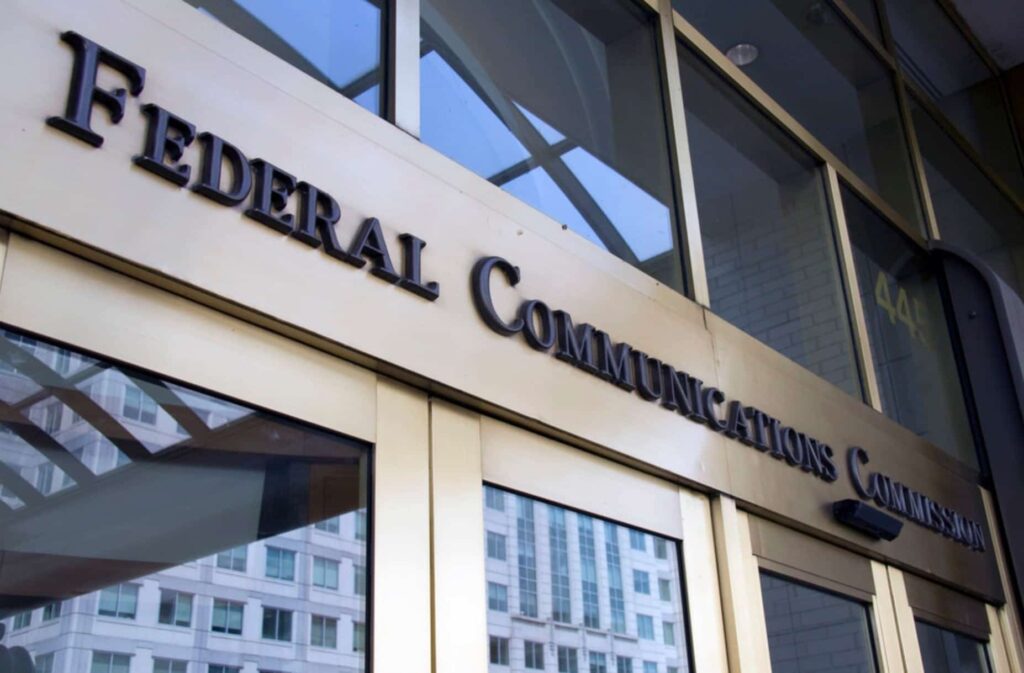It has been another eventful and busy year at VITAC. In addition to captioning nearly 600,000 hours of programming in 2019 – that’s more than 11,000 hours of captioning per week – we also announced new technologies, shared thousands of articles and updates via our social channels, and worked closely with consumers and advocates to provide the highest quality captions.
We kicked off 2019 with the launch of our new, refreshed ordering site, making it even easier for clients to order new captioning services and update already scheduled captioning projects.
In April, we were the proud recipient of the Richard J. Follett Memorial Award from the Center for Hearing & Deaf Services, Inc. The award is presented to an individual or organization that exhibits compassion, dedication, volunteerism, and a determined commitment toward enhancing the quality of life for persons who are deaf or hard of hearing.
We also were a sponsor of and participant in TDI’s 23rd Biennial Conference, was among the presenters at the Hearing Loss Association of America’s (HLAA) 2019 convention, and was a gold-level sponsor of the HLAA’s Walk4Hearing event in Littleton, CO.
VITAC also was a gold-level sponsor of the Society for Human Resource Management’s Inclusion 2019 conference, a President’s Circle sponsor of the Communications Media Management Association’s national conference, a panelist and presenter at the Silicon Valley Video Producer’s technology demo on accessibility and inclusion strategies for video production, and a participant in The Video Show 2019.
We also shared webinars and white papers, published more than 70 news blogs, ranging from VITAC- and industry-specific news and happening to ADA actions before the courts to legislative updates to new technologies.
So as we put 2019 to bed, we wanted to take a moment to look back at our top 10 blog posts from the past year. Here they are, in order of most-viewed.
1. ADA Round-Up: Corporate Videos, Candidate Websites Lack Captions, Accessibility
Our monthly column highlighting recent news, updates, events, and rulings regarding the Americans with Disabilities Act focused on legal actions brought against a handful of companies that failed to provide reasonable accommodations – such as a lack of captions on training and orientation videos – for its deaf and hard-of-hearing employees.
2. Celebrating 29 Years of the Americans with Disabilities Act
2019 marked the 29th anniversary of the Americans with Disabilities Act, which was signed into law on July 26, 1990. Though the Americans with Disabilities Act and captioning don’t always necessarily go hand-in-hand, many corporations, educational institutions, government entities, and stadiums, arenas, and event centers, just to name a few, employ captions and audio description to become and remain ADA compliant and provide greater access to those who are deaf or hard of hearing.
3. Doing Captions Right: Captioning Standards and Best Practices for Television
We took a look at the Federal Communications Commission’s rules for TV closed captioning and best practices for video programmers and captioning vendors to ensure that viewers who are deaf or hard of hearing have full access to programming. Among the caption rules that apply to all television programming, captions are required to be accurate, synchronous, complete, and properly placed.
4. VITAC Files Support of FCC Petition on Caption Quality Metrics, ASR Rulemaking
VITAC supported a petition before the Federal Communications Commission that asked the commission to develop objective, technology- and methodology-neutral metrics for live captioning quality, and issue a declaratory ruling on the use of automatic speech recognition (ASR) technologies.
Specifically, the petition – filed in August on behalf of nearly a dozen deaf and hard-of-hearing academic and consumer groups – asks that the FCC issue a ruling explaining how the commission’s “best practices” for video programmers, caption vendors, and captioners apply to ASR.
5. ADA Round-Up: Harvard, MIT Captioning Suits, Employee Accessibility Claims
April’s ADA column looked at captioning suits against Harvard University and MIT that alleged that the schools failed to caption its public online content (see an update on Harvard’s settlement here), a discrimination suit against UPS over a lack of sign language interpreters, and a settlement in a disability discrimination suit against insurance provider BlueCross/Blue Shield of Texas.
6. ADA Round-Up: Safeway, Lyft, Greyhound, and Pokémon Face Accessibility Claims
The spotlight fell upon disability discrimination suits involving supermarket chain Safeway, rideshare service Lyft, and the Pokémon Company; a $3 million payment involving Greyhound Lines, Inc., to settle ADA claims; and planned legislative action by New York lawmakers to curb the number of federal lawsuits filed over websites that allegedly violate the terms of the Americans with Disabilities Act.
7. Deaf Awareness Month Celebrates Culture, Heritage, Language
September was Deaf Awareness Month in the United States − a month-long celebration dedicated to increasing public awareness of deaf culture and deaf issues as well as recognizing the heritage and language unique to the deaf and hard-of-hearing community.
8. Cities Signing Up for Mandatory Captions on All Public Televisions
Seattle, Washington, last April passed a bill that required televisions in all of the city’s public spaces – such as bars, restaurants, fitness centers, and hospital waiting rooms − to show closed captioning whenever those TVs are on. Seattle followed a number of other cities, including Rochester, New York; San Francisco, California; Portland, Oregon; Ann Arbor, Michigan; and Pawtucket, Rhode Island, with similar ordinances. Albuquerque, New Mexico, proposed its own captioning ordinance in November, and Tacoma, Washington, passed its captioning ordinance in December.
9. ADA Round-Up: Legislative Access and Government Captions
Government access made headlines last summer. The 11th Circuit Court considered a case that argued Florida’s refusal to provide captions for legislative proceedings violated federal law, while a Texas man claimed that the Texas house violated ADA requirements by refusing to provide captions for its legislative hearings.
10. How to Make Social Media Videos More Accessible to Friends, Family, and Followers
Video has a starring role in the social media content shared today. But videos can create challenges for users wanting to make sure the content they share is accessible to all friends, family, and followers. Adding captions to videos posted on social media goes a long way toward making them inclusive for all.
And that wraps up our countdown of the top 10 blogs of 2019! Keep an eye on our blog throughout 2020 as we look forward to keeping readers informed of the latest VITAC news and industry happenings. Stay tuned!




